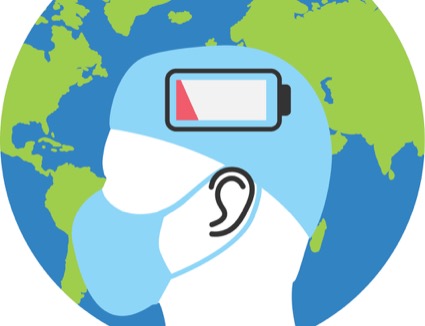Physician burnout remains a persistent problem in the United States. Recent estimates reveal that over 40% of physicians report feeling burned out, a figure that appears to be rising as the COVID-19 pandemic continues to compound chronic job-related stressors.
In the June 2021 issue, General Surgery News highlighted a major contributor to burnout in the United States: work hours [“Eliminating 24-Hour Call: Does It Work?”]. The article captured an acute care surgery team’s effort to alleviate the burden of 24-hour call by instituting a 12-hour shift structure instead.
The change made big waves in the department of surgery at Texas Tech in Lubbock.
Catherine Ronaghan, MD, FACS, a professor and the vice chair of the Department of Surgery at Texas Tech, used the word “revelatory” to describe the restructuring. “I noticed a difference immediately in my focus and energy, which allowed me to have much more meaningful experiences with patients,” she said.
In the United States, a growing body of evidence shows that long days on the job can contribute to physician burnout (J Am Coll Surg 2016;223[3]:440-451; Arch Surg 2011;146[2]:211-217). Most recently, Medscape’s 2021 National Physician Burnout & Suicide Report, which included more than 12,000 physicians, found that 37% of respondents cited hours at work as one of the top four factors leading to burnout. Other key factors highlighted by physicians included bureaucratic tasks (58%); lack of respect from colleagues, administrators and staff (37%); and insufficient compensation or reimbursement (32%).
But what about outside the United States? Do work hours affect surgeons in other countries to a similar degree?
Although data are more limited, several reports indicate that work hours do play an important part in surgeon burnout abroad (Royal Coll Surg Eng 2020;102[6]:401-407; Arch Surg 2010;145[10]:1013-1016). An analysis published earlier this year, which surveyed 615 general surgeons in Turkey, reported a prevalence of burnout of 69% and ranked work hours—specifically 60 hours or more per week—as one of the three main contributors to burnout (BMC Health Serv Res 2021;21:39).
The main factors highlighted by Medscape’s 2019 Global Physicians’ Burnout and Lifestyle Comparisons report, which included almost 20,000 physicians spanning the United Kingdom, France, Germany, Portugal and Spain, also largely align with those described in the U.S. survey. Too many hours at work ranked a close second to excessive bureaucratic tasks, especially for physicians in Portugal (51%), Germany (50%), and France (45%). Lack of respect from colleagues, administrators and staff represented the third major stressor, followed by feeling like “a cog in the wheel,” insufficient compensation or reimbursement, and a focus on profits over patients.
However, according to several surgeons, long work hours may not actually be a key factor driving surgeon burnout abroad. Using a relatively simple metric like work hours may miss the more complex stressors that surgeons face on the job.
“Burnout has always been multifactorial and, in Europe, there are broader issues at play than work hours, related to how surgeons are remunerated and valued—or not valued—in the health care system,” said Neil Smart, a consultant colorectal surgeon at the Royal Devon & Exeter Hospital, in Exeter, England.
The 2021 analysis from Turkey provides a window into that complexity. The study concluded that the top three contributors were long hours at work, employment at a training and research or state hospital, and minimal time for social activities. But, notably, surgeons’ top 10 suggestions on how to reduce burnout did not match these three major contributors. The three often cited remedies were implementing a fair salary policy (84%), preventing violence against health care workers (78%), and introducing reforms to reduce medical malpractice lawsuits (75%). Regulating work hours appeared on the list but toward the bottom.
“Surgeon burnout is a big problem in Turkey, and my colleagues and I conducted this analysis to highlight the main sources and what can be done,” said the study’s corresponding author Cihangir Akyol, MD, a colorectal surgeon at Ankara University, in Turkey. “We found that improving work hours is one solution, but it is likely not the most important one.”
Still, Dr. Akyol did not downplay the role that work hours play in surgeon burnout, which he acknowledged may be on par with surgeons’ experience in the United States, especially considering the increased workload and stressors physicians have faced during the COVID-19 pandemic.
In Turkey, an ongoing threat of physical violence and malpractice accusations from patients, in particular, carry significant weight for surgeons. For instance, a piece published in January 2020 in the outlet Inside Turkey reported a physician exodus to countries in the European Union (EU) given the harsh working conditions in Turkey—the threat of mass layoffs, mandatory security checks, and ongoing problems including “verbal and physical violence against health care professionals.” According to the Turkish Medical Association, data from the Ministry of Health revealed that about “40 cases of violence are reported daily at healthcare institutions” and in 2018, “more than 15,000 such cases were reported.”
“These risks to our personal and professional safety make the job especially challenging,” Dr. Akyol said.
In the United Kingdom, Dr. Smart cited elements of the job that create the most stress for him: the changing nature of the work itself and the lack of respect for physicians.
“Time at work is not just about the total number of hours; it’s also about the structure and substance of the work,” Dr. Smart said. “For one, the endless problems and time spent with EMRs [electronic medical records] contribute to feelings of burnout.”
The nature of surgical training has changed with the introduction of shift work in the early 2000s. When the EU’s Working Time Directive capped workweeks at 48 hours including overtime, “the hierarchical mentorship structure and sense of teamwork among trainees and senior surgeons largely went away,” he said.
Regarding professional respect, Dr. Smart has witnessed the rise of the uninformed expert, especially during the coronavirus pandemic. “We saw demonstrations in London recently where an anti-vaxxer compared doctors and nurses to Nazi war criminals,” he said. “That’s a moment when you ask yourself, ‘Why am I doing all this hard work?’”
For Gregorio Maldini, MD, a hepatobiliary surgeon who began his career in Rome and now practices at Straub Medical Center, in Honolulu, burnout in Italy is largely fueled by low pay as well as too much bureaucracy and paperwork. In other words, “when your effort is not correlated to your rewards is when people feel the pain”—what he calls work that is “not morally and financially compensated.”
Although the individual factors contributing to burnout will vary from country to country, the underlying issue remains the same. Whether chronic work-related stress arises from too many hours on the job or with the EMR, a pay structure that does not fairly compensate years of training and level of expertise, or a lack of personal and professional safety and respect, these issues reflect the ways in which health systems around the world do not adequately protect physicians.
Identifying the risk factors and their variations that exist across countries, institutions and individuals will go a long way toward mitigating their impact. But solving such a complex problem will also take considerable time and likely require an overhaul of health care systems. Dr. Akyol was cautiously optimistic that the landscape for surgeons can improve, but he saw a long road ahead.
“I’m currently 45 years old and will likely work 20 more years before I retire, and I’m not sure I’ll see the burnout problem change in that time. But the more we talk about this issue and study it, the better equipped health care workers will be to solve it,” Dr. Akyol said.



